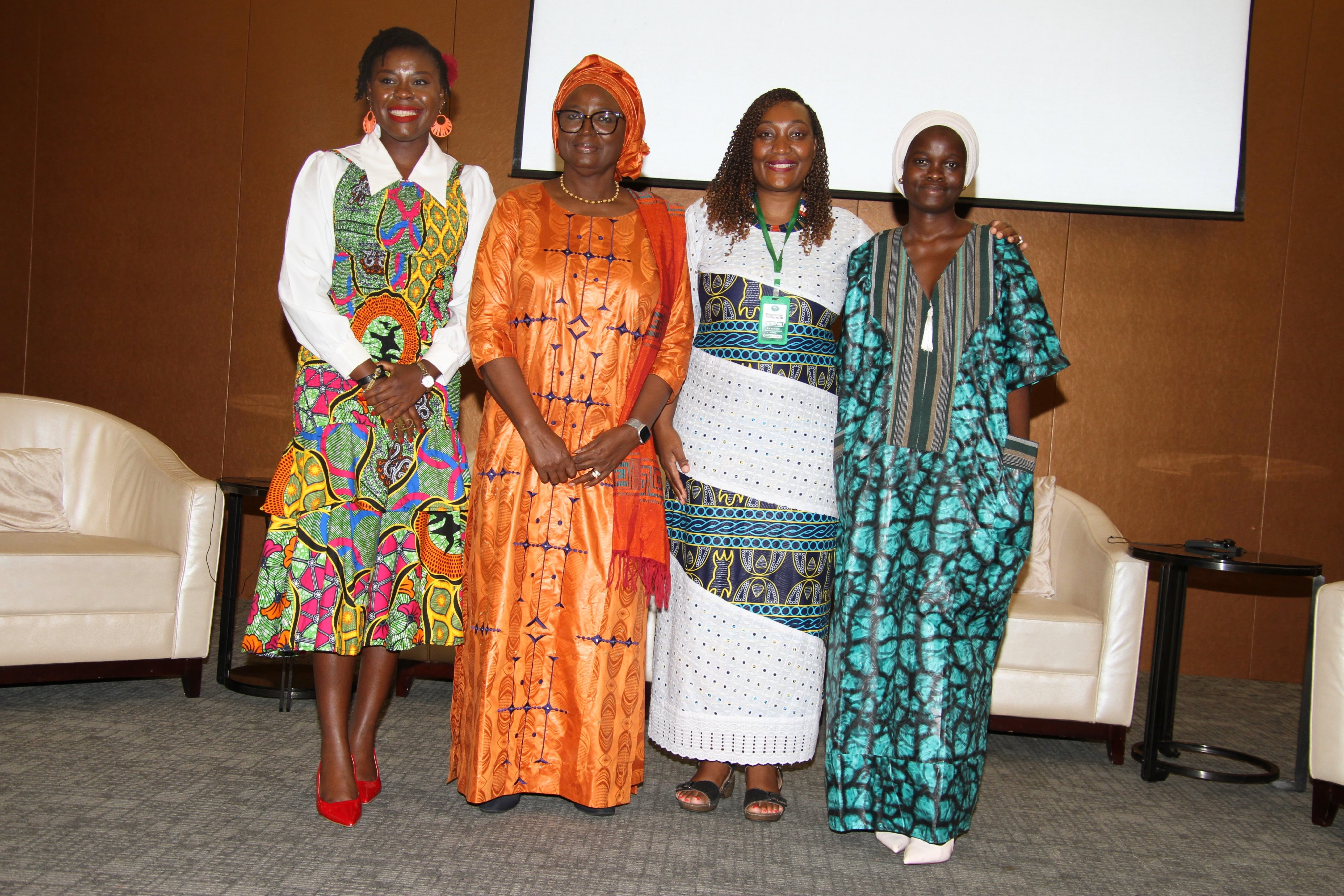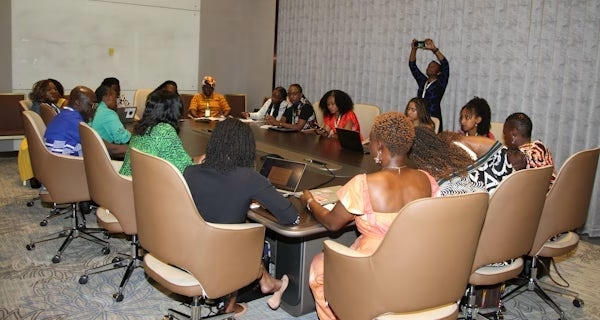
Reclaiming Justice, Reimagining Reparations: FEMNET Charts Feminist Pathways at the 7th GIMAC/RECs and Partners Meeting
From the historic grounds of Malabo, Equatorial Guinea, a bold feminist declaration echoed across Africa: reparations are not just a historical obligation, they are a feminist imperative. Between 7th and 9th July 2025, the 7th Gender Is My Agenda Campaign (GIMAC) / RECs and Partners Meeting convened policymakers, activists, and regional bodies to deliberate on this year’s African Union (AU) theme—Justice for Africans and People of African Descent Through Reparations. And at the heart of it all was FEMNET, leading with vision, voice, and a clear feminist agenda.
As an organizing partner and member of the GIMAC Coordination Committee, FEMNET didn’t just participate; we shaped the discourse. A highlight of the convening was the unveiling of our latest background paper: “Creating New Pathways to Reparative Justice: Pan-African Feminist Perspectives on Justice Through Reparations.” This paper goes beyond the question of “why reparations” to tackle the “how” and “for whom,” firmly anchoring reparative justice within African feminist thought and lived realities.
Henrietta Ekefre, one of the paper’s co-authors, reminded us that personal experiences are deeply connected to politics. She said, “This paper is more than just research—it holds our shared memories, our fight for justice, and our push for change. We are speaking out about the harm done, showing where power lies, and taking back control of our stories. Reparations for African women must change systems, reflect our different identities, and boldly follow feminist values.”
“Our vision for reparations is not just transactional. It’s transformative,” said Memory Kachambwa, Executive Director of FEMNET, during the launch. “It is about addressing intergenerational harm and securing economic and ecological justice for African women and girls. Reparations must go beyond compensation; they must be about healing, restoring, and reclaiming.”
The background paper offers a comprehensive feminist framework for reparations that centers truth-telling, restitution, economic justice, land rights, and community healing. It boldly challenges extractive colonial legacies and neoliberal structures that continue to marginalize African women and girls, particularly about land dispossession, unpaid care work, and structural violence. It calls for reparations mechanisms that are survivor-centered, gender-responsive, and rooted in Pan-African solidarity.
The convening also featured dynamic breakout sessions, one of which was particularly compelling—Land, Climate & Ecological Justice: Advancing Reparations and Restitution for Africa and its People, facilitated by FEMNET. This session delved deep into the gendered dimensions of land injustice and environmental degradation. Participants reflected on how colonial land theft and modern-day extractivism have pushed women to the fringes of economic power and ecological sustainability.
“Climate justice is not separate from reparations—it is reparations,” emphasized Cleopatra Phiri-Hurungo, Gender Team Lead, United Nations Development Programme (UNDP). “We cannot talk about restorative justice while African women continue to bear the brunt of climate collapse, land grabs, and food insecurity. Reparations must address this ecological debt.”

Participants engage in conversations during a breakout session at the 7th GIMAC RECs/Partners meeting.
Participants echoed this urgency, calling for restitution frameworks that prioritize land tenure security for women, climate financing directed to grassroots women-led initiatives, and reparative investments in food sovereignty and agroecology.
Mutheu Mutuku, Founder and Creative Lead at Equality Vanguard, emphasized the importance of centering the voices of young women and girls in reparations discourse, underscoring that their experiences, insights, and demands must be actively included in shaping just outcomes.
“Reparations must reflect the realities of all generations. We cannot talk about justice while sidelining young women and girls. Their voices are not just the future, they are the present, and they must be heard now,” she affirmed.
Across plenaries and sessions, one thing became clear: reparations must be gender-transformative. The Outcome Document from the convening, shaped by inputs from FEMNET and other feminist allies, outlines bold and actionable commitments. Among them: the establishment of gender-responsive reparations funds, the acceleration of the AU Convention on Ending Violence Against Women and Girls (CEVAWG), and a unified call for a common African position on reparations that centers women’s historical and contemporary experiences.
Janet Ramatoulie Sallah-Njie, the Special Rapporteur on the Rights of Women in Africa within the African Commission on Human and Peoples’ Rights (ACHPR), also lent her voice to the cause. “Justice delayed is justice denied. Reparations must be deliberate, intersectional, and unapologetically feminist. Our mechanisms must move from rhetoric to delivery.”
Mary Wandia, speaking on behalf of Co-Impact, one of the key supporters of the feminist convening, reinforced the need for multi-stakeholder collaboration: “This work cannot be done in silos. We must build bridges between movements, states, RECs, and civil society. Reparations are not charity. They are justice. And justice must be funded.”
As the curtains closed on the 7th GIMAC/RECs Meeting, the message was resounding: Africa’s path to justice cannot ignore the unpaid debts owed to its women, its girls, and its land. FEMNET’s feminist interventions and the launch of Creating New Pathways to Reparative Justice mark a key shift in how the continent frames reparations—not as a technical issue, but as a political, economic, and deeply personal journey toward healing and liberation.
Related Tags
Related Posts
Bensouda on Investigating SGBV Cases
UN Women sat down with Fatou Bensouda, the Prosecutor of the International Criminal Court, on her plans to
Learn More